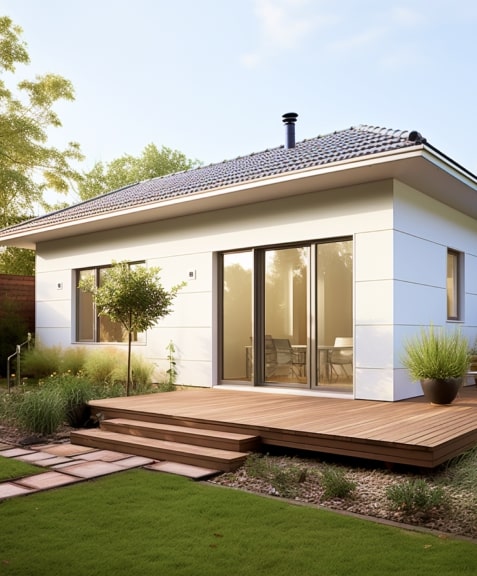
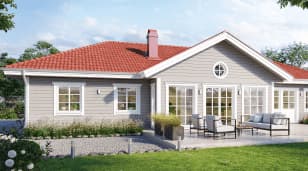
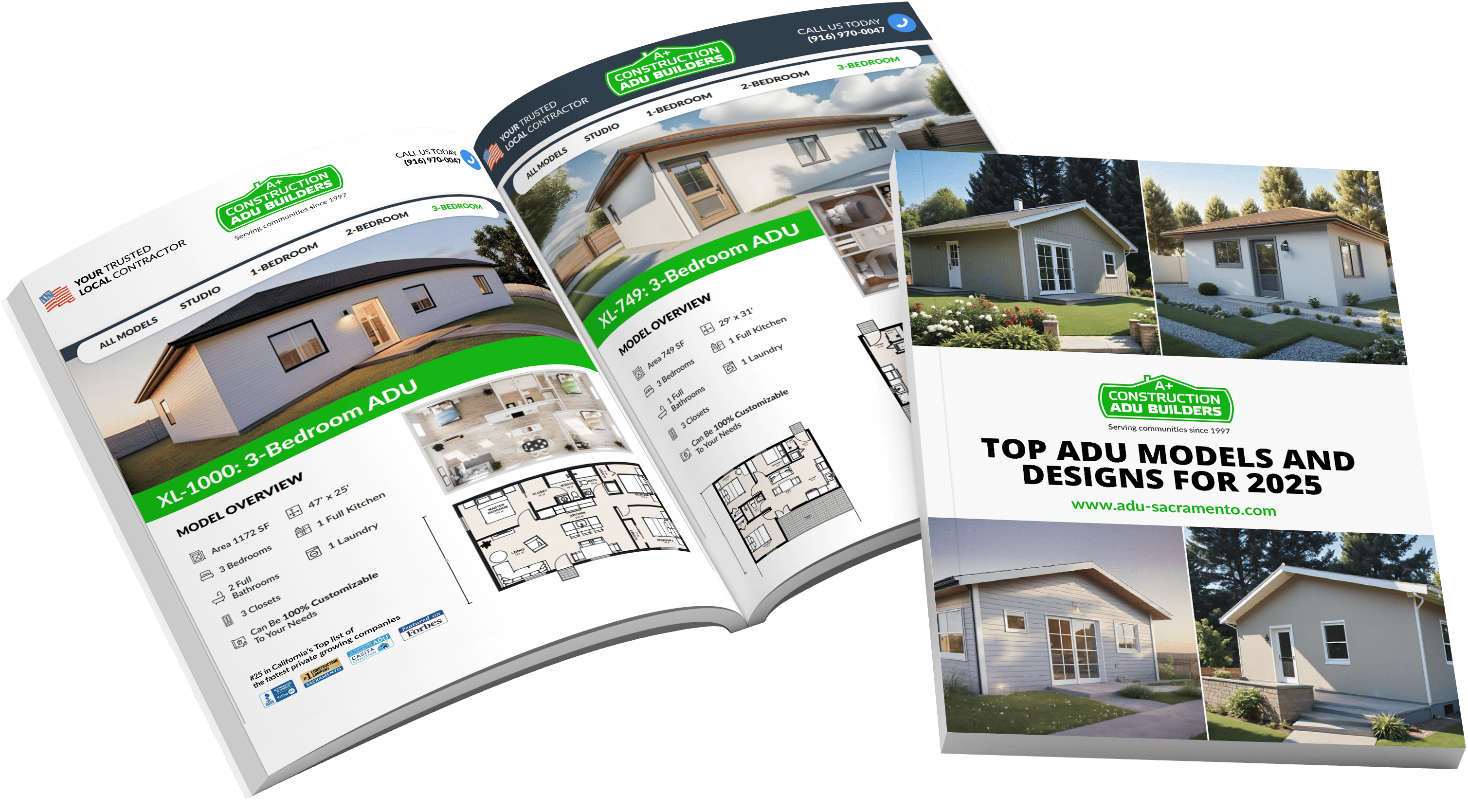

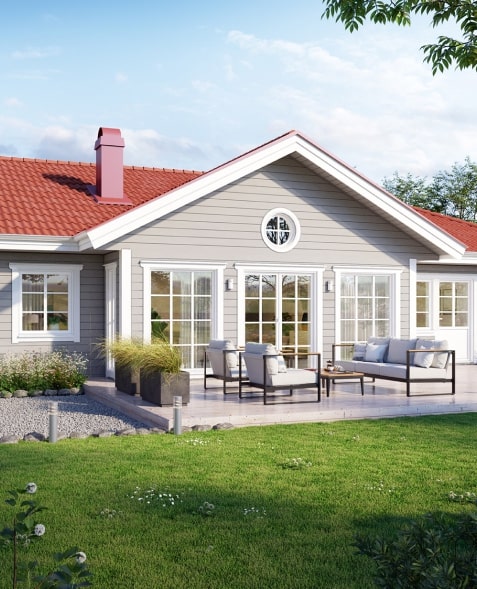
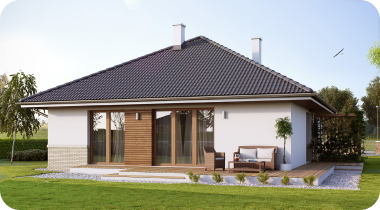
A link to download your FREE brochure will be in your inbox in 3 minutes
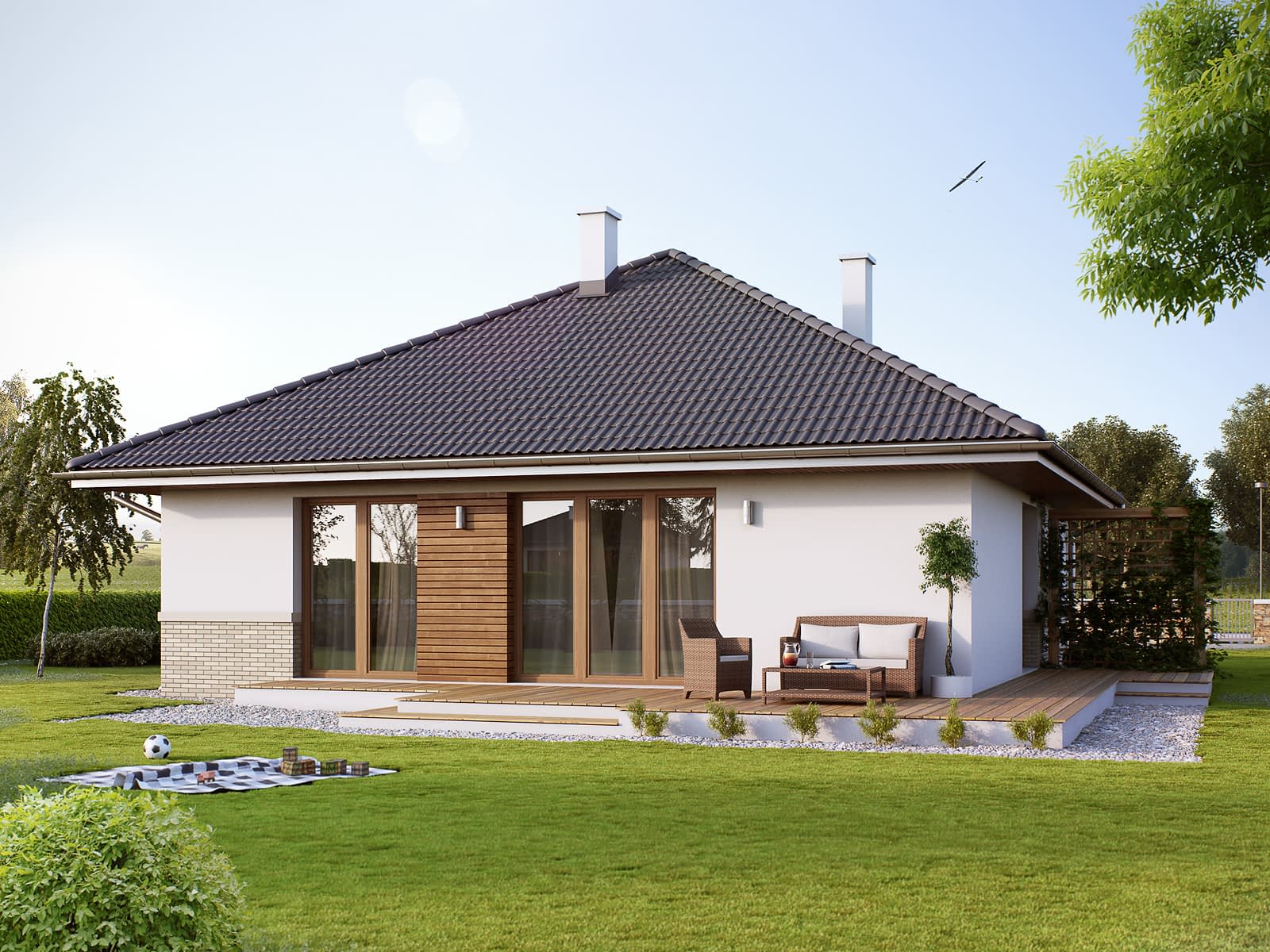





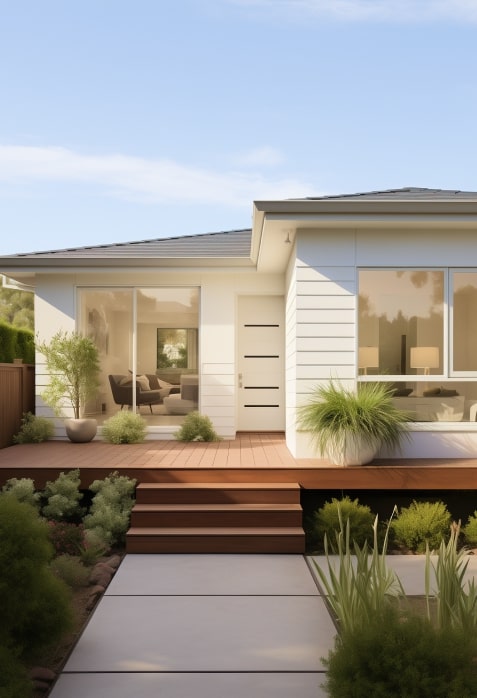
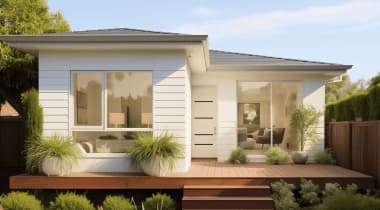











The final price may vary based on project specifics.
To get a free accurate quote tailored to your needs, book a consultation with us today!

The price per square foot provided is an average and may vary depending on project-specific details such as materials, location, complexity, and other factors. Actual costs may differ from the average provided.
It is recommended to obtain a detailed quote based on the specific requirements of your project.

Please note that the monthly payment displayed on this page is an estimate and is subject to variation based on the selected loan product, applicants credit score, loan amount, and other financial details. Actual monthly payment may differ from the estimate provided.
It is recommended to seek advice from a financial advisor or loan officer to obtain precise payment information tailored to individual circumstances.
 Your Trusted
Local Contractor
Your Trusted
Local Contractor
If you are looking to get extra living space and upgrade your property by building a backyard ADU or starting a garage conversion project, you should first arm yourself with comprehensive knowledge of the current Sacramento ADU laws. This article will help you make a mindful decision.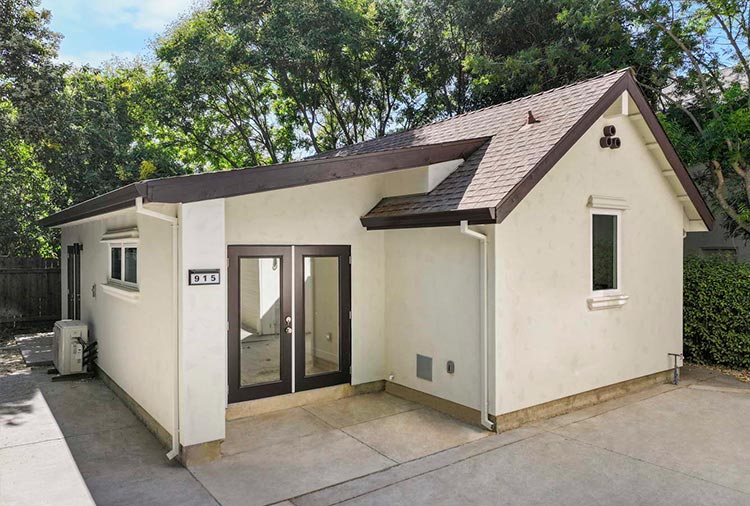
Today, Sacramento is a leading community in California in terms of progressive accessory dwelling unit (ADU) regulations aimed at utmost accessibility and universality for the residents. The demand for reasonably-priced housing units and effective use of territory has prompted the authorities to implement supporting measures for individual developers, renters and homeowners and revise ADU regulations in their favor, and not without bringing palpable benefits for the entire community.
Below is a comprehensive table outlining key regulatory conditions for three types of Accessory Dwelling Units in Sacramento.
| Conditions | Sacramento – Detached ADU | Sacramento – Attached ADU | Sacramento – Junior ADU (JADU) |
| Max size | 1,200 sq. ft | 1,000 sq. ft or 50% of the main home | 500 sq. ft |
| Separate meters allowed | Yes (optional) | Yes (optional) | No (must share services) |
| Nonconforming structures | Not allowed | Not allowed | Not allowed |
| Max Occupancy | No specific limit (must meet building code) | No specific limit (must meet building code) | No specific limit (must meet building code) |
| Ownership | No owner occupancy is required (per AB 976) | No owner occupancy is required (per AB 976) | No owner occupancy is required (per AB 976) |
| Accessory Structure Height (max) | 16 ft (up to 18 ft if near transit) | Same as primary structure height limits (25–35 ft) | Within a main home (N/A) |
| Accessory Structure Setbacks (Side/Rear) | 4 ft side and rear | Follow zoning for the primary structure | Within an existing home (N/A) |
Speaking of Accessory Dwelling Unit (ADU) laws and policies, you should first, get acquainted with the definition of this type of housing and consider what dwelling units in California fall into the category of ADUs. In a nutshell, an ADU is a secondary, isolated residential unit that shares the same lot with a main dwelling unit.
Having gained huge popularity across the country, a wide variety of forms make ADUs versatile housing options for many Sacramento residents, too. However, while being legal under California law, not all residentially zoned lots can qualify for ADU construction. Accessory dwelling units remain a vital instrument in covering local housing needs in Sacramento and beyond.
Let us consider the most common ADU configurations and tell the difference:
Sacramento property owners and the community, in general, can enjoy the benefits of building Accessory Dwelling Units. Here are the most celebrated advantages:
Most residentially zoned territory lots in Sacramento are eligible for building at least one accessory dwelling unit. Sacramento’s zoning code allows ADUs on R-1, R-2, R-3, and R-4 zoned parcels. Homeowners have an opportunity to create a detached ADU, consider attachment to their primary living unit, and undertake a conversion of an already existing structure into an ADU.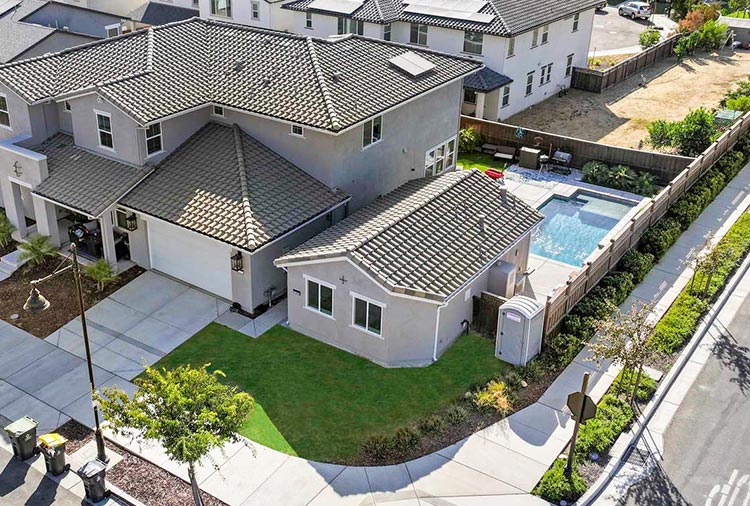
Let’s explore what features a lot should have to qualify for ADU building in Sacramento:
You can determine ADU eligibility and find out more details by consulting Sacramento’s ADU Resource Center. There, you can consider shelf-ready ADU plans, community zoning maps, and take advantage of property review tools.
Feel free to reach out to A+ Construction, a leading ADU contractor in Sacramento. We’ll meet you at your site, provide a free assessment and help you find the ideal solution for your property. Our certified ADU specialists are there for you to answer any questions you may have about regulations and requirements.
Keep in mind that properties in historic districts or special overlays may require additional review and consultation.
| Zoning | Minimum Lot Size for ADU (up to 800 sq. ft.) | ADUs Allowed | JADUs Allowed | Detached ADU Height Limit | Additional Notes |
| R-1 | No minimum | Yes | Yes | 16 ft (18 ft if near transit) | Must meet development standards |
| R-2 | No minimum | Yes | Yes | 16 ft | Same as R-1 |
| R-3 | No minimum | Yes | Yes | 16 ft | Same as R-1 |
| R-4 | No minimum | Yes | Yes | 16 ft | Same as R-1 |
| RMX | No minimum | Yes | Yes | 16 ft | Mixed-use zoning, residential use required |
| RO | No minimum | Yes | Yes | 16 ft | Office-residential allowed |
| OB | No minimum | Yes | Yes | 16 ft | Business mixed |
| H | No minimum | Yes | Case-by-case | 16 ft | Historic district overlays may apply |
| TC | No minimum | Yes | No | 16 ft | Transit corridor zone |
| MFR | No minimum | Yes | No | 16 ft | Multifamily residential |
| C-1 | No minimum | Yes | No | 16 ft | Commercial – local |
| C-2 | No minimum | Yes | No | 16 ft | Commercial – general |
Sacramento has adopted progressive ADU regulations to make the development process more streamlined and cater to the homeowner audience’s needs. For one, thanks to state bill AB 1332, in cities with 200,000 residents, a pre-approved ADU program is available. AB 2533 prohibits cities from requiring correction of ADUs that were built without a permit before Jan 1, 2020 if the structure meets certain health and safety standards. But it doesn’t guarantee permit approval without inspection, limiting cities from forcing demolition if safety standards are met.
Under state law (Gov Code §65852.2), up to two detached ADUs per multifamily lot (not per unit) are allowed. Interior conversions are based on the number of existing units, but detached ADUs are capped at 2 per lot.
Under California Building Code, solar panels are required for newly constructed detached ADUs, unless exempt (e.g., due to shading or infeasibility). This does not apply to conversions or JADUs.
In 2025, Sacramento has worked with California’s HCD to promote awareness of ADUs through updated design guidelines.
Below is a breakdown of the key requirements that affect Sacramento homeowners and ADU developers in 2025. Please note that some site-specific questions may involve additional city planning consultation.
Sacramento laws allow local homeowners to consider various ADU formats to build:
Let’s take a look at the biggest accessory dwelling unit sizes that are allowed in Sacramento, as distinguished by type.
| Type of Unit | Max Size (sq. ft.) | Percentage of Main Home | Min Lot Size Required | Allowable on Multi-Family Lots | Additional Notes |
| Detached ADU | 1,200 | N/A | No minimum | Yes | Can be two stories with conditions |
| Attached ADU | 1,000 | 50% | No minimum | Yes | Must be subordinate to the main dwelling |
| Junior ADU (JADU) | 500 | N/A | No minimum | No | Must be within the main house with efficiency kitchen |
Keep in mind that current size limits may vary depending on zoning regulations, physical location, and lot measurements. What’s more, local development standards may be in place for specific types of dwellings, such as flag lots or corner properties.
ADU height limits differ depending on the type of dwelling unit and vary based on individual factors, like location and currently active zoning policies.
Let us take a glance at setback requirements for ADUs in Sacramento:
| Setback Type | Minimum Distance | Applies to | Waivers Possible? |
| Rear Yard | 4 feet | All ADUs | Yes |
| Side Yard | 4 feet | All ADUs | Yes |
| Property Line (Detached) | 4 feet | Detached ADUs | Yes |
| Front Property Line | May vary; 10+ ft | Varies by zoning | Sometimes |
| Garage Conversion | No setback required | Conversions only | N/A |
Irregularly shaped properties or small-sized lots may receive setback waivers based on particular grounds: case in point, if an ADU is under 800 sq. ft.
Convenient parking is essential for the overall comfort of the homeowner. However, one should embrace the community interests and comply with the local policies. There are times when having an additional parking lot is mandatory — as it is for ADUs in Sacramento.
However, additional parking is not mandatory when:
If parking is mandatory, it may assume the shape of tandem parking or be part of an existing driveway. However, replacement parking is not compulsory for an existing garage conversion.
Permits are a must-have for all ADU projects in Sacramento. Electrical, plumbing and structural works also require permission. The authorities must either approve or deny complete applications within 60 days.
| Fee Type | Estimated Cost | Applies To | Time Collected |
| Plan Check Fee | $1,000 – $2,000 | All plans | During plan submission |
| Building Permit Fee | $1,000 – $3,000 | All ADUs | After approval |
| Utility Connection Fee | $1,000 – $4,000 | When new utility lines are needed | Before construction |
| Impact Fee | Waived under 750 sq. ft. | Only for large units | With permit |
| School Fee | $1.07 per sq. ft. | Over 500 sq. ft. | With permit |
| Fire Department Review | $300 – $500 | New structures | Before permit issuance |
As to the fees, here are some details:
Regular permit-related costs for a standard 600 sq. ft. ADU range from $3,000 to $9,000, depending on the project’s complexity.
As to design variability, Sacramento’s objective design standards are still for every homeowner to heed. These may limit your individuality but ensure your ADU’s compatibility with other homes in your neighborhood.
Here are the factors to consider:
These standards still allow for architectural flexibility in ADU construction to a certain extent, but the core is in harmonious uniformity.
Our experienced A+ Construction ADU Builders designers will create a custom ADU design that will perfectly complement your main dwelling unit, ensuring aesthetic and increasing the overall value of your property.
While utility connection costs may be different due to individual details of an ADU project, the average homeowner is looking at somewhere between $5,000–$15,000 for upgrades.
As of 2025:
This rule makes ADU investment more accessible and beneficial to landlords and owners of non-owner-occupied properties.
A partial reassessment of the new construction provided by the Sacramento County Assessor’s Office may follow the ADU addition procedure. This measure does not apply to the entire property.
| Scenario | Estimated Tax Increase/Year | Tax Applies To | Assessed Separately? | Based On |
| 600 sq. ft. ADU ($150,000 value) | $1,500 | New construction only | Yes | Estimated value |
| JADU (500 sq. ft., $75,000 value) | $750 | New construction only | Yes | Estimated value |
| Detached ADU (1,200 sq. ft., $250,000 value) | $2,500 | New construction only | Yes | Estimated value |
If you are about to have a 600 sq. ft. ADU built on your lot, valued as high as $150,000, you should get ready to spend around $1,500 in annual property taxes. Luckily, the base tax rate doesn’t change for the original structure.
California’s authorities keep ADU growth among the top priorities, issuing beneficial local policies in an effort to support residents and build a harmonious environment while rising to the challenges of modern housing.
Here are some important ADU law updates for 2025:
These newly reshaped policies serve to reduce barriers for ADU owners and owners-to-be, help expand the rental housing market, and bring beneficial financial opportunities for property owners in Sacramento.
Anyone looking to build a detached ADU, convert a garage, or invest in shelf-ready ADU plans should first embrace current regulations. Sacramento’s updated ADU policies in 2025 reflect a broader commitment to housing diversity, spur and fuel urban development strategies, and aim to provide economic flexibility for residents.
With reduced barriers, a faster permitting process, and expanded development rights, Sacramento property owners have assumed a favorable position to contribute to the city’s housing goals while benefiting from added value and increased rental income.
Avoid the stress of navigating regulations and permit filings — build your ADU with A+ Construction. We’re Sacramento’s leading ADU experts, handling your project from preparing plans and submitting permits to delivering a fully completed ADU.
Get a First Look at Real ADU Projects